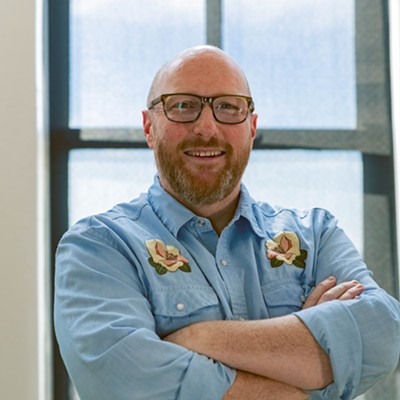Sitar virtuoso Anoushka Shankar, daughter of legendary sitar master Ravi Shankar and half-sister to North Texas' Norah Jones, is an extraordinary talent who lets her inventive work introduce her vision. Shankar sees a wide, blank canvas from which to work, using regional and sonic traditions as mere suggested guidelines.
Whether it's her current album, Traveller, which blends spellbinding sitar with flamenco, or her work with Thievery Corporation, Shankar goes in the direction her instincts take her. We caught up with her recently, as she prepared for a duo of shows Saturday and Sunday at the Wyly Theatre, inside of the AT&T Performing Arts Center. We discussed her father's considerable music footsteps, being traditional while venturing outside of normal boundaries and her work in journalism.
Along with your musical pursuits, you've also been an active writer and columnist. Did your column have a specific focus when you wrote for the Hindustan Times or First City Magazine? I was lucky to be able to write extremely open columns where I could share what I wished. Mostly the columns revolved around causes I believed in, that connected to current world issues, or art and my experiences traveling as a musician, and random thoughts and musings.
Your father wrote the lyrics to "Krishna" on this latest album. Has working with your father artistically ever been something you thought against doing in order to forge your own artistic identity? My father is a part of my artistic identity, both in the obvious sense of having been my teacher from the beginning of my musical studies, and also as someone I grew up around and traveled and toured with for most of my life. I am very comfortable in my own skin and know that I am my own person and my own artist whilst also having him as a huge influence, so I don't see any need to try to deny his influence on me or deny myself some beautiful artistic inspiration. On Traveller, his only contribution is with lyrics to one of 12 songs, so it's not much in a direct sense, but his influence is there in my playing and composition style anyway.
How tough of a balancing act is it to push the traditional boundaries of Indian music by blending flamenco? It wasn't so much about pushing the Indian classical boundaries as finding a natural meeting ground between Indian classical music and flamenco. I'm not just playing flamenco music on the sitar; rather, every instrument and artist on the album is stretched outside of a normal comfort zone, to try to trace a common root or find new ways to communicate whilst still paying these two great traditions the respect they deserve.
Merging flamenco with the sitar seems to make almost logical sense, compared to the sitar with the electronic style of Thievery Corporation or the rock of Lenny Kravitz. Are you both a traditionalist and an adventurer? I suppose so. I value tradition greatly, and even outside my own music I have always loved things like old films, classic literature and poetry and art from the past. It's important for society and for people to have traditions and a connection to their past. But it's just as important for human beings to have a means to express themselves and the world around them. In my music I suppose that's all I do -- try to make sense of, and explore, the world around me and within me.
I'm curious what you think of the term world music, since it's so often applied to your recordings. Couldn't all music be considered world music? I absolutely agree that all music, unless made by aliens, should be considered world music. World music as a label is basically applied to non-Western music and is therefore quite culturally arrogant. However, the problem lies more with the necessity to label and package music, which comes from the commercial system we all have to work within. I understand why the label exists in that situation and wouldn't suggest an alternative preference, as that would just replace one phrase with another. As an interesting piece of trivia, my father was one of the people to champion the label "world music" many decades ago, to replace the much more offensive label, ethnic music. So unless there is an actual attitude shift about grouping all non-Western forms of music together in one genre, I think we're stuck with things they way they are.
With the love you so openly express for your father, how is creating art different for you, now that you're a mother? That's an interesting question. The answer is still evolving and will hopefully continue to evolve. Love in itself is the biggest inspiration for art, and my heart has expanded so much since having a child, so in a way I feel more full of inspiration than ever before.











